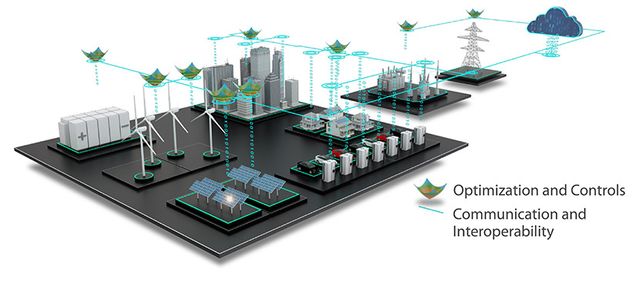Emiliano Dall’Anese, Boston University Professor, joins as CISE Affiliated Faculty

According to the United States Environmental Protection Agency (EPA), motor vehicles produced about 22% of total U.S. greenhouse gas emissions in 2020, making them the most significant contributor to the country’s emissions. Emiliano Dall’Anese, Associate Professor (ECE, SE) and faculty affiliate of the Center for Information & Systems Engineering and Hariri Institute, uses optimization, control, and learning to address such issues related to sustainability, energy affordability, equity, and resilience.
One of his current research activities focuses on the role that electric vehicles (EVs) play in improving the sustainability of our electrical and transportation infrastructure. Specifically, Dall’Anese and his team have researched how to optimize renewable-based electric vehicle charging while preserving the quality of ride-sharing services like Uber. They introduce a mechanism to promote the scheduling of EV charging during parts of the day with high generation from renewable sources of energy, or when power grid operators require demand response and capacity services to improve the loading and reliability conditions of the grid.
The team also proposes the concept of “charge request,” in which a utility company asks ride-hailing operators to charge the vehicles either when it is more energy efficient, or when it is convenient for the power utility company to improve the loading conditions of the systems. “It’s the same concept of a ride request,” Dall’Anese said. “The only difference is that with the ride request, you have a driver taking you to your destination. Instead, with a charging request, the driver parks and charges the car.”
More broadly, Dall’Anese focuses on control and learning in several physical network systems, ranging from the power grid to autonomous vehicles. He develops foundational theories, methods, and algorithms that can address engineering and societal challenges, such as problems in power and transportation systems. “The main objective here is to tackle challenges that are related to sustainability, energy affordability, and resilience,” Dall’Anese said.

Within his research, Dall’Anese is most excited by the “robust connection between foundational theory and mathematics with practical implementations that can make a difference in society.” He hopes to build new methods of architecture that advance both the fields of mathematics and engineering and thought that BU would be the perfect place to do so — he describes BU as “an impressive institution with a forward-looking and ambitious vision.”
During the fall semester, Dall’Anese will be focused on advising PhD students, some of whom followed him from University of Colorado Boulder, where he previously taught. In the spring, he will be teaching a new course on Control of Sustainable Power Systems. “It is a cross-disciplinary course that brings together control theory, optimization, and power systems,” he said. The goal is to endow students with a robust and versatile toolkit to address a wide range of control and optimization problems in modern power systems, and to acquire problem solving skills from foundational concepts to the frontiers in modern societal infrastructures.
Working with students is one of Dall’Anese’s favorite aspects of his job which was the reason he made the switch from working in industry, specifically national labs, to academia. “National labs and academia are two exciting but different worlds,” he said. “When I was [at the National Renewable Energy Laboratory], I was missing the interaction with students.” Engaging with students fosters fresh perspectives that enrich our research efforts and help drive the boundaries of scientific discovery forward.
Dall’Anese joined Boston University in July of 2024. Previously he was Associate Professor within the Department of Electrical, Computer, and Energy Engineering at the University of Colorado Boulder. Prior to that, he was a Senior Engineer at the National Renewable Energy Laboratory, working on traditional methods for power grids. He received the NSF CAREER award in 2020 and the 2023 IEEE Transactions on Control of Network Systems best paper award in December 2023. He is a Senior Member of the IEEE.